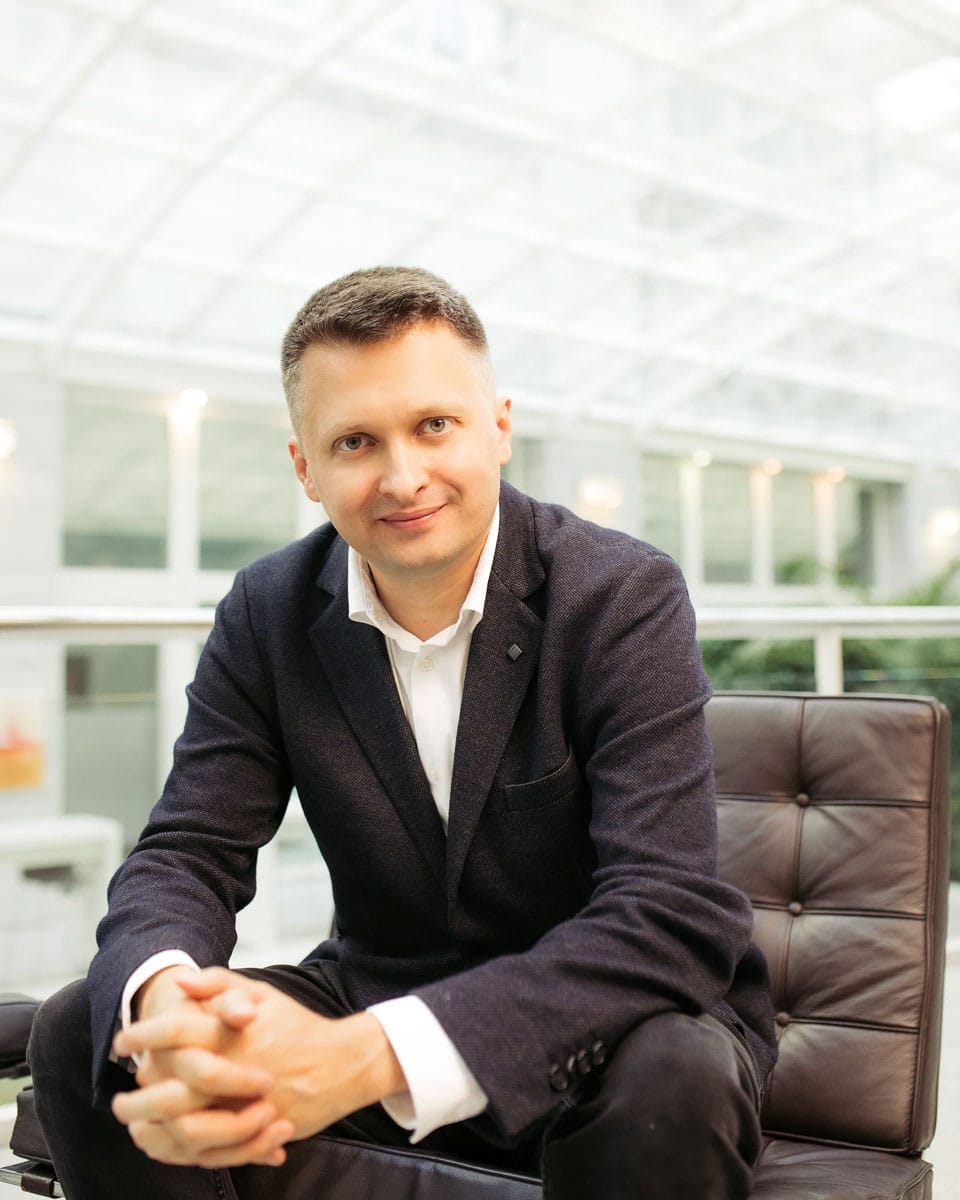The End of English Dominance? Vidby Advocates for Linguistic Diversity in Business

In an increasingly globalized world, the dominance of English as the de facto language of business is being questioned. Alexander Konovalov, CEO of vidby, a Swiss tech startup offering AI-powered video translation and dubbing, is at the forefront of this discussion. vidby’s mission is to enable seamless communication across languages, fostering greater inclusivity and business potential. In this interview, Konovalov shares his insights on the necessity of embracing linguistic diversity, the benefits it brings, the role of AI in transforming business communication, and the cognitive biases that can hinder this transformation.
The Limitations of English Dominance
“Business is global and only 20% of people speak English,” Konovalov states. This statistic underscores a significant barrier: the vast majority of the world’s population prefers to communicate in their native languages.
Companies that cannot accommodate this diversity risk alienating potential customers, partners, and employees. “Our mission isn’t to create a global language,” Konovalov explains. “Rather, we want to preserve linguistic diversity, enabling everyone to communicate with the world in their native tongue.” vidby’s technology makes this vision a reality, offering real-time translations that allow for authentic communication without the need for a shared second language.
vidby practices what it preaches. “Our employees speak nine different languages,” says Konovalov. During team meetings, each member speaks in their native language while vidby MeetUp provides real-time translations. This approach demonstrates that linguistic ability should not overshadow professional skills. “It doesn’t matter what language a person speaks; what matters is their ability.” This linguistic diversity has proven beneficial, fostering a more inclusive and dynamic workplace where talent is recognized and utilized regardless of language barriers.
Breaking Down Barriers for Greater Inclusivity and Business Success
The removal of language barriers has broader societal implications. “The internet erased geographical boundaries, mobile communication provided complete mobility, and now AI-based technologies of understanding have removed language barriers,” Konovalov notes. Historically, language differences have divided people, but AI-driven translation technologies have the potential to bridge these divides, promoting global understanding and cooperation. “When everyone can understand each other, it naturally brings us all closer together.”
While the ethical importance of diversity is clear, businesses are ultimately judged on their profitability. Konovalov argues that linguistic diversity can directly impact a company’s bottom line. “Language is the basis of communication and communication is the basis of business,” he asserts. By communicating in a client’s language, businesses can better understand customer needs, convey product advantages more effectively, and ultimately increase sales. Moreover, eliminating the necessity for English proficiency allows companies to tap into global talent pools, enhancing recruitment efforts and potentially reducing labor costs by hiring in less expensive markets.
Recruitment challenges are prevalent across many industries, and vidby’s technologies offer a solution by widening the talent pool. “Businesses no longer have to rely on talent from their local market to fill talent gaps,” Konovalov says. By removing language requirements, companies can conduct interviews and hire candidates worldwide, selecting the best fit for the job regardless of their native language.
The Role of Cognitive Biases
Cognitive biases can significantly impact the adoption of linguistic diversity in business. Two biases particularly relevant in this context are status quo bias and functional fixedness.
Status quo bias is the preference for the current state of affairs and the resistance to change. This bias can hinder the adoption of multilingual practices in business. Companies may stick to using English as the primary language because it’s what they’ve always done, despite the potential benefits of embracing linguistic diversity. This resistance to change can prevent businesses from exploring and investing in new technologies like vidby’s AI-powered translation tools that can open up new markets and improve communication with international stakeholders.
Functional fixedness is a cognitive bias that limits a person to using an object only in the way it is traditionally used. This bias can affect businesses’ perception of language as a barrier rather than a bridge. Companies might view language skills purely in terms of hiring employees who already speak the required languages rather than leveraging technology to overcome these barriers. By seeing language skills in this limited way, businesses miss out on innovative solutions like vidby’s real-time translation, which can enable effective communication regardless of linguistic differences.
Mitigating Miscommunication Risks
Greater linguistic diversity can lead to miscommunication, a potential pitfall that businesses must navigate. vidby addresses this issue head-on with its “translation interpretation” tool, which provides users with insights into how their words are interpreted by the technology. “If there’s a mistake, they can easily figure out why and rephrase their statement accordingly,” Konovalov explains. While no technology is flawless, understanding and adjusting to these imperfections is key. “Even if there are mistakes, if you can grasp the meaning, you can understand the language.”
vidby’s technology is integral to its own operations, facilitating communication with global investors and during international conferences. “All of our investors speak German, but I don’t—and I intentionally decided not to learn because I want to show by example that you can communicate with everyone in your native language,” Konovalov shares. This real-world application showcases the practicality and effectiveness of vidby’s tools in overcoming language barriers.
AI and the Future of Work
The shift towards global labor markets raises concerns about workers in higher-cost regions. Konovalov believes that AI-driven translation technologies will create better opportunities for everyone, not just lower labor costs. For instance, in Switzerland, where multiple languages are spoken, language requirements can deter highly qualified workers. vidby is preparing an official appeal to Swiss authorities to allow AI-assisted language exams, enhancing Switzerland’s competitiveness for international talent.
Addressing fears about AI’s impact on employment, Konovalov is optimistic. “It’s a misconception that AI will affect the labor market adversely,” he argues, citing historical examples where technology improved living and working conditions despite initial resistance. AI will not replace workers but rather assist them, making work easier and more efficient, and freeing up time for development and innovation. “New professions will emerge, and those who see AI as a friend and assistant, which it is, will win.”
Conclusion
Alexander Konovalov’s vision for vidby highlights the transformative potential of AI in breaking down language barriers. By fostering linguistic diversity, businesses can enhance communication, tap into global talent, and drive profitability. As AI continues to evolve, its role in creating a more inclusive and efficient business environment becomes increasingly evident. vidby is leading the way, demonstrating that embracing technological advancements in communication is not just beneficial but essential in today’s globalized world.
Written by Dr. Gleb Tsipursky.
Have you read?
Countries: Powerful Passports. Countries: Richest. Countries: Poorest. Countries: Happiest. Countries: Life Expectancy.
Bring the best of the CEOWORLD magazine's global journalism to audiences in the United States and around the world. - Add CEOWORLD magazine to your Google News feed.
Follow CEOWORLD magazine headlines on: Google News, LinkedIn, Twitter, and Facebook.
Copyright 2025 The CEOWORLD magazine. All rights reserved. This material (and any extract from it) must not be copied, redistributed or placed on any website, without CEOWORLD magazine' prior written consent. For media queries, please contact: info@ceoworld.biz








